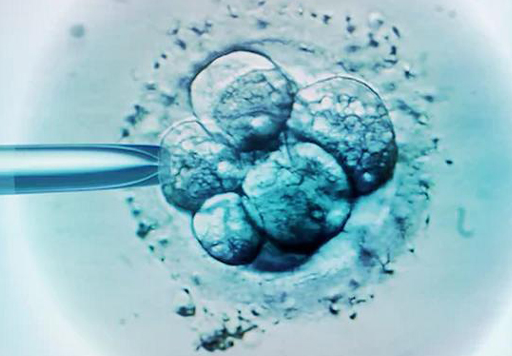(单词翻译:单击)
Scientists have edited human embryos for the first time in the UK to discover a "master gene" that underpins successful pregnancies. The "game-changing" research promises improved IVF outcomes and a breakthrough in understanding why so many pregnancies fail.
科学家首次在英国对人类胚胎进行编辑,他们发现了一种为妊娠成功奠定基础的"主导基因"。这项"划时代"的研究有望提高体外受精成功率,并有助于了解很多人妊娠失败的原因。
The Government-funded investigation, undertaken by the Francis Crick Institute, is the first to prove that gene editing can be used to study the genetic behavior of human embryos in their first few days of life.
弗兰西斯克里克研究所在政府的资助下进行了这项研究,首次证明可以利用基因编辑研究人类胚胎发育最初阶段的遗传行为。
By removing a gene called OCT4, which produces a protein, the team discovered it was crucial to a viable pregnancy.
通过移除一种名为OCT4的蛋白质生成基因,研究团队发现,该基因正是成功妊娠的关键。
As well as its potential for more successful IVF, the discovery heralds a transformation in understanding the fundamental causes of infertility and miscarriage.
这一发现预示着人们对流产和不孕的根本原因的认识将发生改变,也预示着试管婴儿的成功率可能将提高。
Approximately one in four couples are affected by fertility problems, and women under 35 currently have just a 32.2 percent chance of a live birth from one round of IVF.
大约有1/4的夫妇受不孕不育的困扰,目前,35岁以下的女性单次体外受精生下活胎的几率只有32.2%。
The odds decrease to 27.7 for women aged 35 to 37, and to 20.8 percent for those aged 38 and 39.
35岁到37岁之间的女性单次体外受精生下活胎的几率则下降到27.7%,而38、39岁的女性则下降到20.8%。

Dr Kathy Niakan, who led the research, said: "One way to find out what a gene does in the developing embryo is to see what happens when it isn't working.
该研究的领头人凯西·尼亚肯博士表示:"想要了解一种基因对发育中胚胎的影响,方法之一就是看当它失效时会发生什么。"
"Now we have demonstrated an efficient way of doing this, we hope that other scientists will use it to find out the roles of other genes.
"现在,我们已经证明这种方法的有效性,我们希望其他科学家也能在研究其他基因的作用时使用这种方法。"
"If we knew the key genes that embryos need to develop successfully, we could improve IVF treatments and understand some causes of pregnancy failure."
"如果我们了解了胚胎成功发育所需的关键基因,那么我们就可以提高试管婴儿技术,并搞清楚导致妊娠失败的一些原因。"
The scientists, who studied 41 human embryos donated by IVF patients, used the gene-editing tool Crispr/Cas9 to make precise cuts in DNA and deactivate OCT4.
科学家们对接受体外受精的患者捐献的41个人类胚胎进行了研究,使用Crispr/Cas9基因编辑工具精准地切割DNA,令OCT4基因失效。
They found OCT4 appeared to be necessary for an embryo to become a blastocyst, a tiny ball of 200 cells that arises a week after conception and marks a key point in embryonic development.
他们发现OCT4基因似乎是胚胎发育成囊胚的必要因素,囊胚是由200个细胞组成的小球体,在受精后一周左右开始出现,是胚胎发育的关键节点。
Only when an embryo successfully reaches the blastocyst stage does it stand any chance of implanting in the womb.
只有当胚胎成功进入囊胚期,才有可能植入子宫中。
The study, published in the journal Nature, found fewer than a fifth of the test embryos reached the blastocyst stage without OCT4.
这项发表在《自然》杂志上的研究发现,当缺乏OCT4基因时,进入囊胚期的实验胚胎不到1/5。


